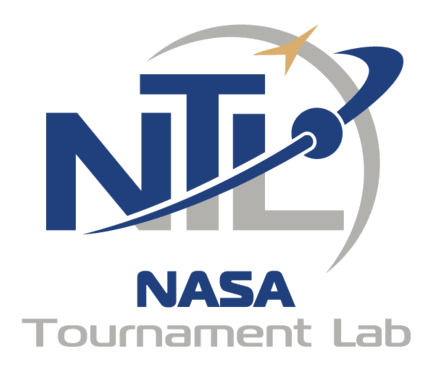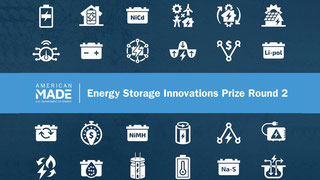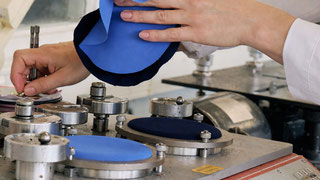The prize competition is limited to U.S.- based, accredited public or private non-profit academic institutions that grant baccalaureate or advanced degrees in biomedical, behavioral, or health sciences, as listed in the U.S. Department of Education database of accredited institutions and programs. More details can be found in the Challenge Rules.
Women continue to be underrepresented at nearly every institution of higher education in the United States in the fields of biomedical, behavioral sciences, and engineering. This is particularly true among mid- to senior-level faculty ranks.
The Prize for Enhancing Faculty Gender Diversity seeks to recognize those institutions whose biomedical and behavioral science departments, centers, or divisions have achieved sustained improvement in gender diversity. Understanding that there is no “one-size-fits-all” solution to enhancing diversity in academia and that ideas based on evidence are necessary to achieve systemic change, this prize will acknowledge and recognize transformative approaches, systems, projects, programs, and processes that have successfully enhanced and sustained gender diversity within an institution.
We recognize that challenges are faced by all underrepresented groups. Women of color, who are at the intersection of gender and race/ethnicity, face unique obstacles and are especially underrepresented as biomedical faculty members and in the leadership ranks. Although this competition focuses on improving gender diversity broadly for all women, the NIH is also interested in institutional approaches that address the underrepresentation of faculty with intersecting identities.
Critical to this prize competition is the identification of best practices, the sharing of lessons learned, and the delineation of evidence-based approaches that can be broadly translated to, and replicated by, other institutions vis-à-vis an NIH-supported national toolkit. Submissions to this prize competition may inform the development of the toolkit, which will be designed to assist other institutions or academic groups with issues of inclusion and help to create environments that facilitate achievement. Because this prize competition recognizes achievement through approaches that have already been applied, such interventions must have been implemented prior to the launch date of this prize competition.
In addition to public recognition for their efforts in enhancing gender diversity, this NIH competition will also award a prize of $50,000 to each institution (up to ten institutions) with the best overall systemic approaches. The total prize purse for this competition is $500,000. Additional submissions may be recognized as honorable mentions with non-monetary awards. Winning participants and honorable mentions may be invited to present their approaches at an NIH Office of Research for Women’s Health hosted scientific symposium.
This prize competition will recognize institutions that have demonstrated successful approaches to improving gender diversity in their biomedical and behavioral science departments. Two categories of institutions are eligible: research-intensive and low or limited-resource institutions.
It is widely acknowledged that enhancing gender diversity is about more than just hiring a few more women. There are many different factors that contribute to a more diverse and balanced faculty such as an inclusive environment, better retention of diverse faculty, and equitable promotion and allocation of resources. Other factors that have shown to have an impact on gender diversity include (not all inclusive) addressing barriers to career advancement, employing mentoring structures, adopting work-life integration and career flexibility programs, enhancing pathways to leadership, and improving recruitment and hiring practices.
Every institution has its own set of unique challenges and context so will likely have adapted and implemented a customized suite or set of approaches, different from other institutions. Critical to this prize competition is the identification of best practices, the sharing of lessons learned, the delineation of evidence-based approaches that can be broadly translated to and adapted or replicated across a range of colleges and universities. Submissions may address any faculty stage, from junior faculty to senior leadership. Because this prize competition recognizes achievement through approaches that have already been applied, such approaches must have been implemented prior to the launch date of this prize competition.
Complete submissions will include metrics that support the efficacy of the approaches taken. There are a number of qualitative and quantitative ways in which the impact of these approaches can be assessed. Conclusions, summary tables, and figures should be accompanied with supporting data that is traceable and labeled/categorized. Please review the guidelines for data and metrics here.
The Prize
In addition to recognition in the area of gender diversity, this prize competition will also award $50,000 to each of up to ten institutions, for a total prize purse of up to $500,000.
Additional submissions may be recognized as honorable mentions with non-monetary awards. Winning participants and honorable mentions may be invited to present their approaches at an NIH Office of Research for Women’s Health hosted scientific symposium.
Although gender inequality in science, medicine, and engineering faculty occur across the United States, patterns of challenges emerge between institutions. Recognizing that disparities exist amongst institutions, judges will evaluate entries in two pools to allow for fair competition. Five of the ten prizes will be awarded to low or limited-resource institutions. Submissions from low or limited-resource institutions will be judged against one another to select those five winners. See definition of “low- or limited-resourced institutions” in the Rules section below, the R15 definition link, and the determination page)
Timeline
- Open submission period September 10, 2020 - April 16, 2021
- Submission deadline April 16, 2021 @ 5pm ET
- Judging April 16, 2021 to July 19, 2021
- Winners Announced July 20, 2021
Submission Requirements
Please carefully review both the submission form and the data and metrics guidelines. Broadly speaking, applicants should be prepared to
- Describe their institution’s approach to improving gender diversity,
- Describe the thought process behind the specific elements of the approach,
- Share any roadblocks to implementation and how they were overcome,
- Provide metrics, figures and analyses that support the stated successes, accompanied by supporting datasets where available
- Discuss how the results demonstrate a sustained change in the institution’s gender diversity.
Please see the Submission Format section below for additional details.
Judging Criteria
Basis Upon Which a Winner Will Be Selected
A panel of federal employees serving as judges will review the prize competition submissions based on the following criteria:
- (40%) Impact:
A single approach or combination of approaches will be evaluated based on the magnitude and extent of impact seen on improving gender diversity at an institution and/or department. Consideration of faculty of intersecting identities, such as women of color, is encouraged in describing the impact to gender diversity. Impact can include qualitative elements like improvement of climate and inclusiveness of the environment. Impact can also include quantitative improvements such as increased rates of female faculty recruitment, retention, and equitable pay across genders.
- (25%) Metrics:
- You must submit the following minimum metrics for the institution, school, division, or department in order to apply. This will ensure a common data set across all institutions.
- Gender baseline: Aggregate faculty demographics for the institution, school, or department to which the approaches or interventions apply, at the pre-implementation stage. Gender data should be provided in proportions and in absolute numbers.
- Gender post implementation: Aggregate faculty demographics for the institution, school, or department to which the approaches or interventions apply, at post-implementation or for the current landscape. Data should be provided in proportions and in absolute numbers.
- Data will be evaluated for its quality and strength, as well as synthesis and analysis in drawing specific conclusions.
- Data will be evaluated on whether it supports multiple elements of impact, as described in the Impact criterion above.
- The institution’s use of data analysis and data trends to reveal both gaps and improvements in gender diversity
- (15%) Sustainability: The extent to which effective efforts to enhance diversity at an institution can be regularly monitored, sustained, and are long lasting.
- (10%) Scalability: The potential for approaches to be broadly implemented in other departments within the same institution, or be scaled up. The ease with which a process could be generalizable and adapted for different situations.
- (10%) Lessons Learned: The submission identifies lessons learned during implementation and clearly explains what challenges were faced and how they were addressed. Honest comments about roadblocks encountered are valuable.
Low- or Limited-Resourced Institutions: Recognizing that disparities exist amongst institutions, judges will evaluate entries in two pools. Entries from research-intensive institutions will be judged against each other. Separately, entries from “low- or limited-resourced institutions” (see definition in rules section below) will be judged against each other.
Submission Format
All applications must be in English and be submitted by the deadline, using the online submission platform. Submissions must abide by character limits (not including supporting data tables or figures). Detailed instructions on data and metric requirements can be found here.
Submission Form:
- Please provide the following:
- Institution Name
- Department/School/Organization Name (if specific to a department or school)
- Name, title, role, and email address of the President, Dean, Provost or similar senior-level official serving as the point of contact for the application (see eligibility rules)
- Is the institution a low- or limited-resource institution? See definition of “low- or limited-resourced institutions” in the Rules section below, the R15 definition link, and the determination page. (Yes or No).
- Executive Summary: Please provide a high-level overview of your submission (3000 characters)
- How did you develop your approach? What evaluation measures were conducted to determine and/or confirm barriers or issues contributing to gender diversity? Why did you pursue this approach over other ways of addressing identified barriers? (4500 characters max)
- What is your approach or combination of approaches? A single approach or a combination of approaches may be presented. Please discuss the:
- Environment and circumstances where the approach was implemented
- Specific actions that the institution took to impact gender diversity
- Process and metrics used to document the activities discussed above
- How metrics were leveraged to support the evolution of the approach(es)
- Resources and staff needed to implement or modify the approach(es)
Please highlight the key elements of successful implementation, along with any challenges encountered in implementation. Additionally, please share any takeaways, lessons learned, and/or insights gained through the process of formulating or adapting the approach(es) and implementing them. (15,000 characters max)
- What was the impact? Describe the impact of the specific approach(es) on the department/institution and support your narrative with examples, images, and/or graphics, as appropriate. If using a combination of solutions describe the impact for each component of the solution. Address the magnitude of the impact and your confidence in being able to ascribe the impact to the approach(es). Please review the impact judging criterion for more information. (12,000 characters max).
- How are your efforts to enhance gender diversity regularly monitored and sustained? Are there data-driven processes or infrastructure to provide iterative feedback to the programs and approaches implemented to improve them? What is your institution doing now and what could they do to sustain the impact? (3000 characters max)
- Would your approach(es) be generalizable and adaptable for other departments within your institution? Could your approach(es) be scaled up to larger portions of your institution? Have any efforts been made to disseminate these approaches within your institution or to external institutions? (3000 characters max)
- Is there anything else you would like to share about your approach(es)? (3000 characters)
- Upload supporting data here in a zip file. See the Guide to Metrics and Data for more information.
- (Optional) Is there anything we should know to better understand the data you uploaded? (2000 characters).
Rules
Eligibility Rules for Participating in the Prize Competition: The prize competition is limited to U.S.- based, accredited public or private non-profit academic institutions that grant baccalaureate or advanced degrees in biomedical, behavioral, or health sciences, as listed in the U.S. Department of Education database of accredited institutions and programs. This includes Hispanic-serving Institutions, Historically Black Colleges and Universities (HBCUs), Tribally Controlled Colleges and Universities (TCCUs), Alaska Native and Native Hawaiian Serving Institutions, and Asian American Native American Pacific Islander Serving Institutions (AANAPISIs). It also includes both biomedical and behavioral research-intensive institutions and low- or limited-resourced institutions (see definition of “low- or limited-resourced institutions” below, the R15 definition link, and the determination page).
Each institution (also defined here as an “entity”) must designate a point of contact who is responsible for all correspondence regarding this prize competition. A point of contact representing the entity should be employed by and/or acting at the behest of the entity, such as the President, Provost, Chancellor, Dean, Department Chair, or other senior-level administrator.
- To be eligible to win a prize under this competition, an entity—
- Shall have registered to participate in the prize competition under the rules promulgated by the NIH, as published in this announcement;
- Shall have complied with all the requirements set forth in this announcement;
- Shall be incorporated in and maintain a primary place of business in the United States;
- Shall not be a federal entity or federal employee acting within the scope of their employment;
- Shall not be a federal employee of the Department of Health and Human Services (or any component of HHS) acting in their personal capacity;
- Who is employed by a federal agency or entity other than HHS (or any component of HHS), should consult with an agency ethics official to determine whether the federal ethics rules will limit or prohibit the acceptance of a prize under this prize competition;
- Shall not be a judge of the prize competition, or any other party involved with the design, production, execution, or distribution of the prize competition or the immediate family of such a party (i.e., spouse, parent, step-parent, child, or step-child)
- To be defined as a “low- or limited-resourced institution” that engages in biomedical or behavioral research, the entity must meet the eligibility criteria of one of the two categories listed below–
- Undergraduate-Focused Institutions
- The entity must be an accredited public or non-profit private school that grants baccalaureate degrees in biomedical sciences.
- At the time of prize competition submission, all the non-health professional components of the entity together have not received support from the NIH totaling more than $6 million per year (in both direct and F&A/indirect costs) in 4 of the last 7 fiscal years.
- Health Professional Schools and Graduate Schools
- The entity must be an accredited public or non-profit private school that grants baccalaureate or advanced degrees in health professions or advanced degrees in biomedical and behavioral sciences.
- At the time of the prize competition submission, the entity must not have received support from the NIH totaling more than $6 million per year (in both direct and F&A/indirect costs) in 4 of the last 7 fiscal years.
- Only one submission per institution is permitted.
- Federal grantees may not use federal funds from a grant award to develop their prize
competition submissions or to fund efforts in support of their prize competition submissions.
- Federal contractors may not use federal funds from a contract to develop their prize competition submissions or to fund efforts in support of their prize competition submissions.
- By participating in this prize competition, each entity agrees to assume any and all risks and waive claims against the Federal Government and its related entities, except in the case of willful misconduct, for any injury, death, damage, or loss of property, revenue, or profits, whether direct, indirect, or consequential, arising from participation in this prize competition, whether the injury, death, damage, or loss arises through negligence or otherwise.
- Based on the subject matter of the prize competition, the type of work that it will possibly require, as well as an analysis of the likelihood of any claims for death, bodily injury, property damage, or loss potentially resulting from prize competition participation, no entity participating in the prize competition is required to obtain liability insurance or demonstrate financial responsibility in order to participate in this prize competition.
- By participating in this prize competition, each entity agrees to indemnify the Federal Government against third party claims for damages arising from, or related to, prize competition activities.
- An entity shall not be deemed ineligible because the entity used federal facilities or consulted with federal employees during the prize competition if the facilities and employees are made available to all entities participating in the prize competition on an equitable basis.
- By participating in this prize competition, each entity warrants that it is the sole author or owner of, or has the right to use, any copyrightable works included in the submission, that the works are wholly original with the entity (or is an improved version of an existing work that the entity has sufficient rights to use and improve), and that the submission does not infringe upon any copyright or any other rights of any third party of which the entity is aware. In addition, by participating in this prize competition, each entity grants to the NIH an irrevocable, paid-up, royalty-free, nonexclusive worldwide license to reproduce, publish, post, link to, share, and display publicly (e.g., on websites) the submission and its contents on the web or elsewhere. Each entity will retain all other intellectual property rights in their submissions, as applicable. To participate in the prize competition, each entity must warrant that there are no legal obstacles to providing the above-referenced nonexclusive license of entity's rights to the Federal Government. To receive an award, the entity will not be required to transfer their intellectual property rights to NIH, but the entity must grant to the federal government the nonexclusive license recited herein.
- Each entity agrees to follow all applicable federal, state, and local laws, regulations, and policies.
- Each entity participating in this prize competition must comply with all terms and conditions of these rules, and participation in this prize competition constitutes each participant’s full and unconditional agreement to abide by these rules. Winning is contingent upon fulfilling all requirements herein.












